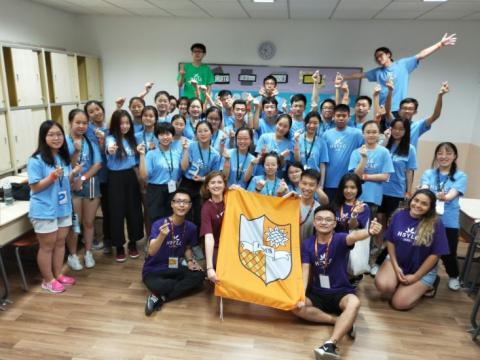The last stretch of my busy summer was spent in the People’s Republic of China. My initial perception of China was largely formed through newspaper articles and reels, but it remained only a distant and mysterious country in my mind. Nothing could have prepared me for the reality of what China was really like.
Arriving in Shanghai, I met just one person at border control as every other form of check was run by machines and the airport was modern and impeccably clean. I was ushered into a taxi by a guide who had been sent to meet me and I spent the next hour peering out of the window as night began to fall on the looming skyscrapers in the distance.
The next 10 days were spent at Shanghai High School, a notoriously rigorous and competitive school for Chinese students. I was there for the Harvard Summit for Young Leaders in China (HSYLC), a Harvard-run programme where high school students from across China are selected for a 10-day conference either in Beijing, Hangzhou, or Shanghai and they attend seminars taught by Harvard students.
My seminar was called “Brexit: Past, Present, and Future”. I taught the seminar as impartially as possible, allowing my students to formulate their own opinion. The seminar was taught in English, even though the students had varying language abilities. Regardless, they were able to comprehend highly complex economic and political terms and engage in light-hearted debate and humor.
The high school students were hardworking and aware of just how important HSYLC was to improve their prospects when applying to US universities, especially since I was able to recommend two students to attend a Harvard conference the following summer.
When speaking with a number of students, they spoke of their own rigorous high schools in their provinces. Some spoke of military training where they had to stand outside for hours on end, wearing full army equipment, in order to qualify for high school. It became apparent that my high school experience vastly differed to theirs.
A number of my students were also aware of ongoing controversies in China. I was asked about my opinion about a vaccine scandal in China, forced abortions under the One-Child Policy, and a fellow seminar leader was even asked about Tiananmen Square. We were careful in our answers, not only to protect the permanence of the programme in China, but also the students themselves. I was also aware that a number of students in my class were children of high-ranking government officials, and I did not doubt that my answers were under close scrutiny.
Despite our extensive differences in background, the students and I were still able to find common ground, and giggle at jokes about current US political leaders and discuss our belief in the power of education.
The remaining five days in China were spent in Hangzhou. I explored the stunning West Lake and cycled through the bustling city with a Chinese friend from Harvard. The beauty of the Chinese landscape was breathtaking and rich with culture. I only experienced a sample of China, but I definitely intend to return next summer. But this time I will be proficient in Chinese.
I have decided to take Chinese BA, the intense introductory Chinese class at Harvard, this semester. With 9am classes every weekday, I find myself able to comfortably converse with Chinese nationals after only one month of studying Mandarin.
This is another benefit of the US education system; I am going to be leaving with a degree in social studies, but I am also able to take a citation in Chinese if I choose. If flexibility and exploring a range of academic opportunities is the university experience for you, consider the US.
Read more: Nine reasons why Chinese students choose to study abroad

Comments